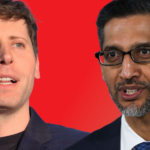Instead of taking their complaints straight to HR—they’re turning to TikTok for advice on ‘protecting their peace’
“Give me your most unhinged toxic job survival hacks,” wrote one user, @lifeandworkbutbetter on TikTok, in a video that’s amassed 6 million views.
“I’m not talking about ‘set boundaries’ or ‘document everything’, I mean the most unhinged, borderline unethical thing you’ve ever done to keep your sanity.”
Gen Z’s most common unhinged hack? Malicious compliance—referring to a viral workplace trend of following instructions exactly as given, even when they know doing so will cause inefficiency or backfire. It’s a form of passive-aggressive protest that’s less dramatic than quitting, but just as telling.
“Once my job made us do ‘productivity’ timesheets and we all agreed to be maliciously compliant,” one user commented. “People were writing, “8:01, hang up jacket, 8:05 took tampon out.”
“[I] Do EXACTLY what my boss tells me. Word for word,” another user wrote. “If it wasn’t spelled out, it isn’t getting done. Malicious compliance.”
Other tricks Gen Zers say they’re turning to to survive their “toxic jobs” include leaning on the “Let them” theory from Mel Robbins, the “Gray Rock method” (essentially, disengaging with that job or person) and copying a fake lawyer into emails with difficult clients.
“I tell myself we’re all characters in a sitcom like The Office and that they are the characters meant to be disliked by the audience and I just stare at the camera,” one user joked.
#toxiccoworker #toxiccolleagues #toxicpeople #mentalhealthatwork #worklife
“I started lying about myself lol,” another user commented. “I would give different people different versions of events about myself and when someone confronted me about the stories being different, I knew they were talking about me behind my back.”
Though the Zoomer generation may have just gained footing at their 9-to-5s, they aren’t scared to hop off the corporate ladder fast for the sake of their mental health.
The psychological tendency—called the fundamental attribution error—is that people assume someone’s actions reflect their personality, rather than the environment they’re in.
“If they [employers] have that perception, it can really do a lot of damage,” Granger tells Fortune.
As many employers have caught on, Gen Z is often motivated to challenge the status quo and eager to contribute, but when ideas are shut down, frustration can escalate if workers aren’t prepared for the resistance they may face.
Instead, Granger recommends setting realistic expectations during the hiring process and reframing challenges rather than retaliating.
“Those challenges that you’re going through—they might be really frustrating, but there’s a difference between those frustrations and something that’s unproductive for you,” Granger says. “What’s the most productive response? That’s the question I would raise to folks who are considering [retaliating].”
“When you’re applying for a job, they’re not just interviewing you — you’re interviewing them,” he adds. “Start setting those expectations for yourself and for your potential employer.”









